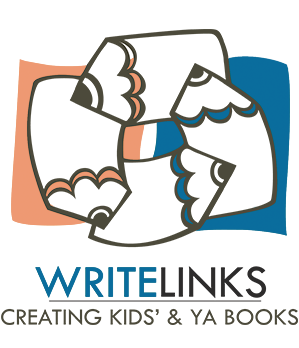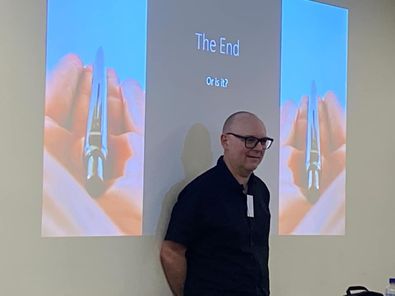
“Idea Creation and Collaboration” with Sean Williams at BSAB October 2022
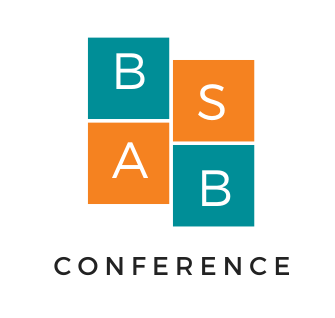
Jacqui Halpin introduced Sean Williams as: supremely talented.
Sean Williams introduced himself as: one who was too stupid to give up.
I’ll also add to these words of praise: extremely knowledgeable, funny and relatable.
Sean shared so many pearls of wisdom, helped us generate some completely ridiculous ideas, and encouraged us to collaborate to produce the bones of a story.
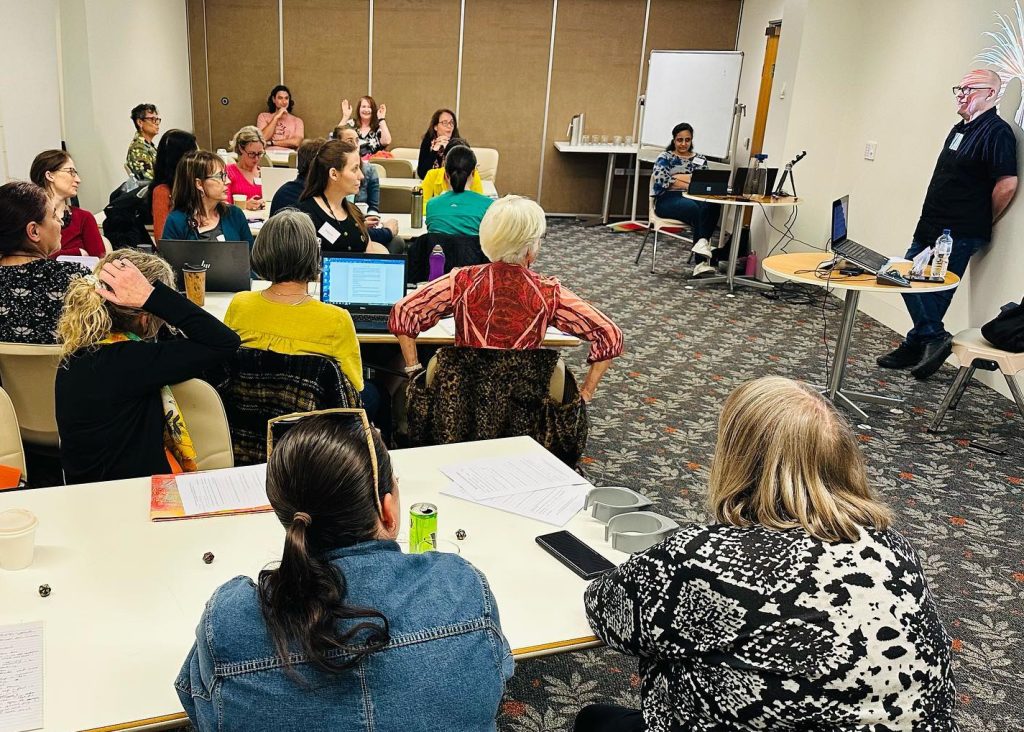
We started our session in Room 1B of the State Library of Brisbane, a bit late and a bit worried about the rain, but super pumped. Hybrid is always a bit different, and Sean took it in his stride, calling upon those in person and online. We looked at how to come up with ideas and I was glad to hear that at the beginning, all ideas are dumb when compressed into one sentence. It’s how you work on it that will make your story amazing.
So, what is an idea, where do they come from and how do we get from dumb ideas to amazing stories?
Where do ideas come from:
- Popping into your head
- Smells, sights, sounds and feelings
- Photos
- Music/ art/ other books/ tv
- Noticing life around you
- Brainstorming
- Prompts/ Story starters on Facebook/ Instagram/ newsletters
- Write a poem a day prompts, Story starter prompts like Pobble365
- Noticing everything around you by keeping your senses open
- Chance
Leaving your ideas to chance:
I was so excited to discover that one of the most fun ways to generate story ideas is with the roll of a die (leaving your story to chance). Sean shared with us the fundamentals of a story, with permission from Nina Kiriki Hoffman. Obviously, I cannot share everything here as I don’t have permission, but the headings of each column included: Protagonist; Antagonist/ Companion; Setting; Obstacle; Goal. With each column including tropes from each genre. We started with fantasy and with each roll of the dice we found the corresponding numbers to build our stories.
With the roll of our new D20s echoing throughout the meeting room, stories came to life. We built connections between things, and some attendees even came up with titles and first scenes for their new stories! My rolls weren’t meshing very well so Sean suggested that when you generate ideas in this way, it is perfectly acceptable to cheat! Re-roll your dice for one or more columns. If a merperson, elf and cannibal witch don’t mesh with the goal of maturing – re-roll!
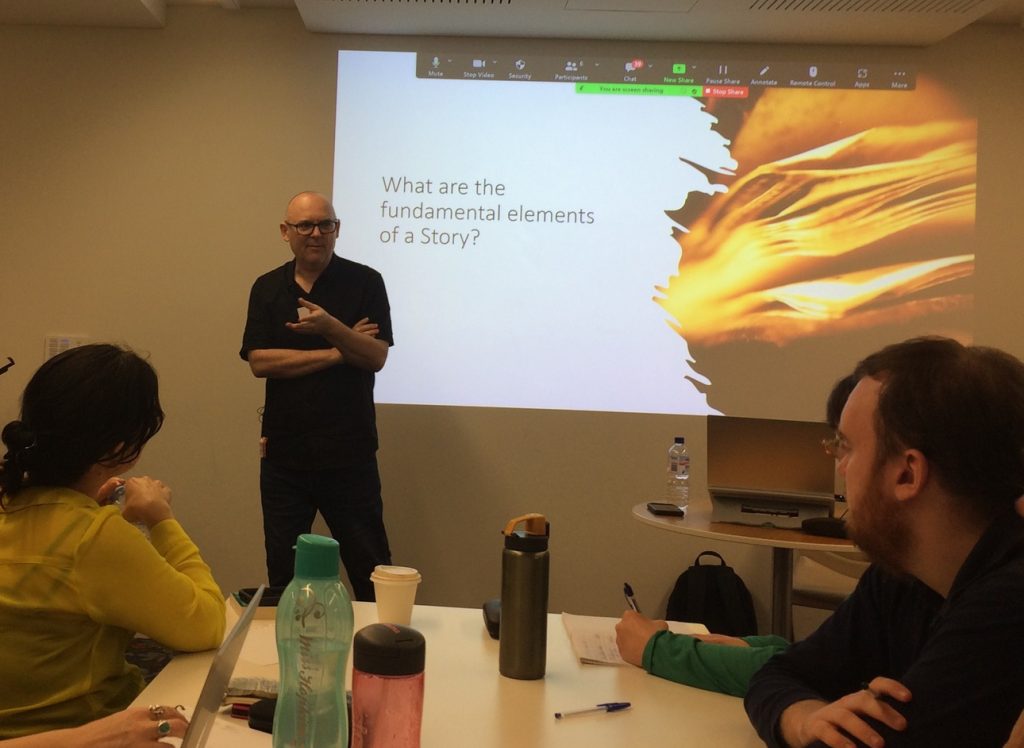 From dumb ideas to amazing stories: Ideas are easy. Ideas are fun. Ideas are simple. – Sean Williams
From dumb ideas to amazing stories: Ideas are easy. Ideas are fun. Ideas are simple. – Sean Williams
Writing a story is all about the connections between the things. Connections between ideas, and sparks that you can’t ignore. To connect seemingly unrelated ideas, think to yourself: How could…? What if…? Then what…? Maybe they could…? Then you work at it… And work at it some more… and then add another idea, maybe many more… It’s as simple as that (apparently). If you can’t work it out on your own, try collaboration.
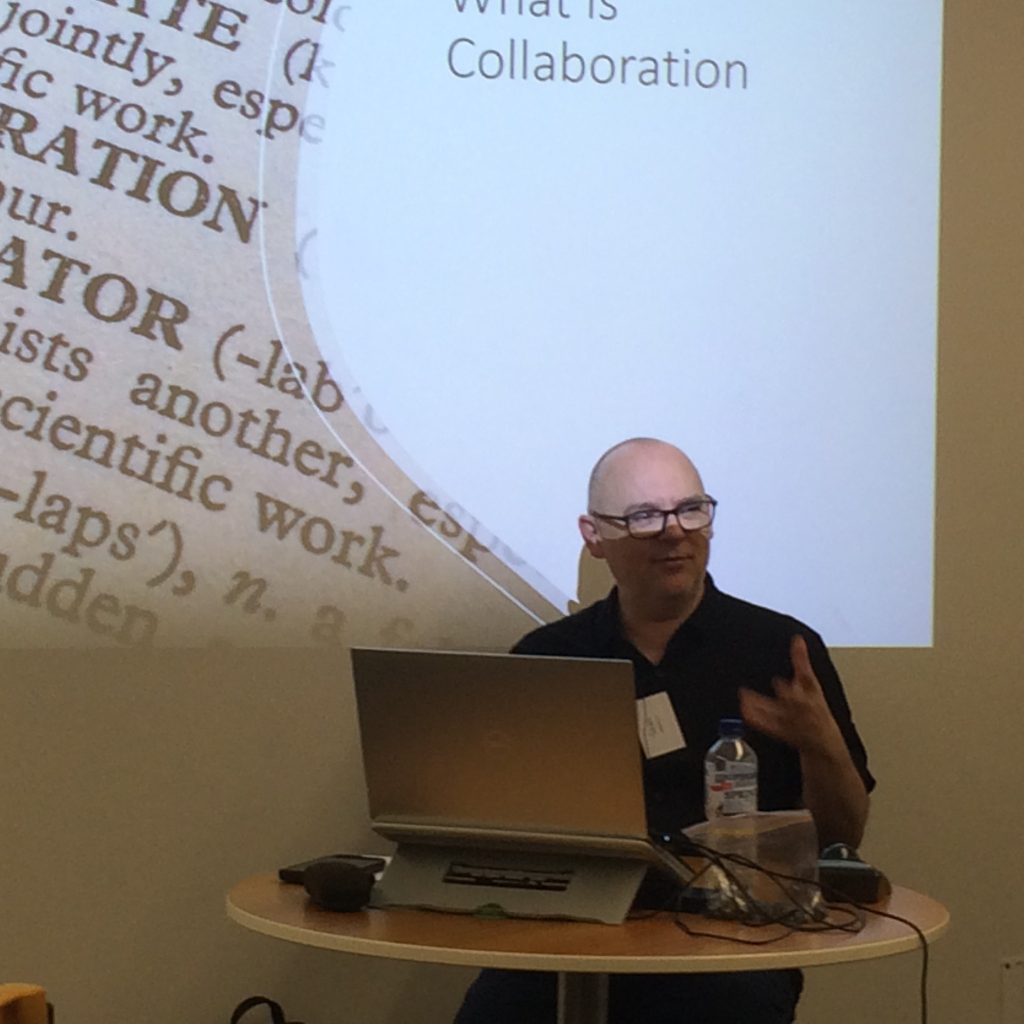
Collaboration:
Collaboration is simply working with others in various ways. It’s quite common in film, TV, gaming, journal articles, biographies, education, translation services, collections, picture books, fan fic, comics, etc.
It is a process that can be revitalising, intense and not something to fear, if done correctly. Sean took us through the many reasons why collaboration can be good, but also why you should be wary.
Why we should collaborate (ideas from Workshop attendees and Sean):
- Two heads are better than one
- Shared experience/ knowledge
- Different perspectives
- Fact check
- To remain humble
- Push ideas further
- Shared joy and successes
- Keep you accountable
- Reenergise self
- Fresh set of eyes on old work
- Can lead to long term friendships/ partnerships
- Forces you to articulate why an idea or section is good or bad
- To get over a hump
- Motivation to keep going or to finish
- Fix each other’s blind spots
- Read over drafts and edit
- Brainstorm or evolve ideas
Basically, you always become a better writer, and produce better work, when you try something new. Even if it means you find out what you can’t do.
Sean’s Rules for Collaboration:
It’s not really a set of “rules” but more of a guideline and points of practice. Overall, if you’re keen to collaborate you need to find what works for you.
- Trust: Trust that you both have the project’s best interest at heart; sort out an agreement and sign it.
- Talk until you’re ready to write: Bounce ideas back and forth; be clear about goals; say “yes, and…”; be adaptable and the best idea wins.
- Solve problems by surrender: Be willing to compromise; introduce old ideas to a new set of eyes.
- Communicate: Be positive; use the sandwich method for critique; always communicate; use active listening; be prepared for conflict.
- Not half the work: You will both feel as if you’re doing all the work.
- Every collaboration is different: Experiment; clarify roles; embrace change.
- Veto: Decide on who has the final say, who has the ‘veto’ power to overwrite; get on with the project after the decision has been made.
- Outline: Links back to communication and talk until you’re ready to write; can be tricky with two ‘pantsers’.
- Version control: Work on the same ‘version’ of the text.
- Attributions: Nobody takes ownership of single ideas, it is everyone’s work.
- Walking away: For whatever reason, agree on who owns the work if you need to walk away from the collaboration; it’s ok if it doesn’t work, try again; be friendly and professional.
Written by Sophia Evans
Sophia has collaborated on a few projects so has some firsthand experience of the highs of collaboration, as well as having a self-published children’s book and various fiction and non-fiction pieces through LibraryForAll. She is a primary school teacher by day, a writer in the evening, and a uni student in all her free time where she is completing a Masters in Creative Writing.
Sophia collaborated with a group of fourteen other authors to publish an anthology in 2020. It started with the phrase “What if…?” at a dress-up writer’s convention dinner in 2019, and the result of the collaboration was our own little book (now for sale online and some in person retailers). This year they are in the middle of publishing their second anthology, which will be launched at GenreCon in Brisbane in February, 2023.
Photo credit: Karen Tyrrell & Danielle Freeland

